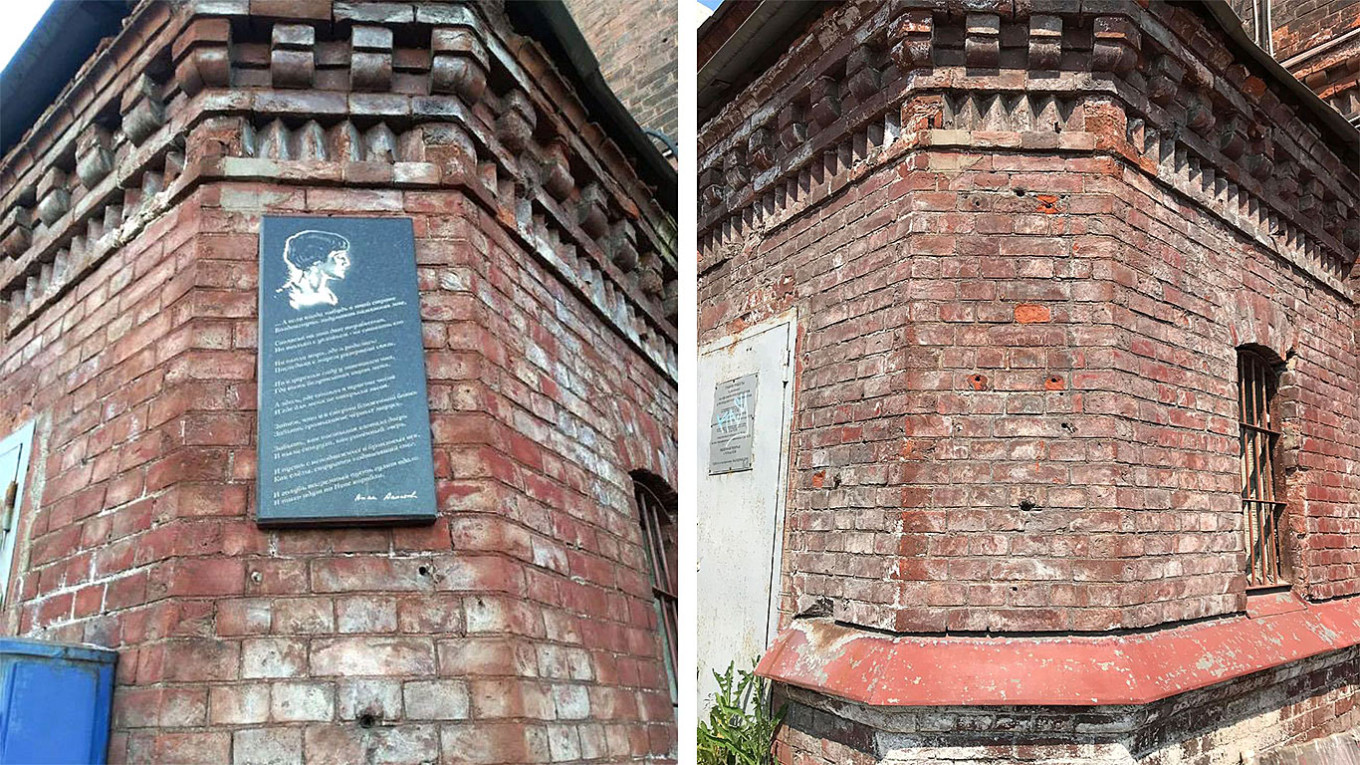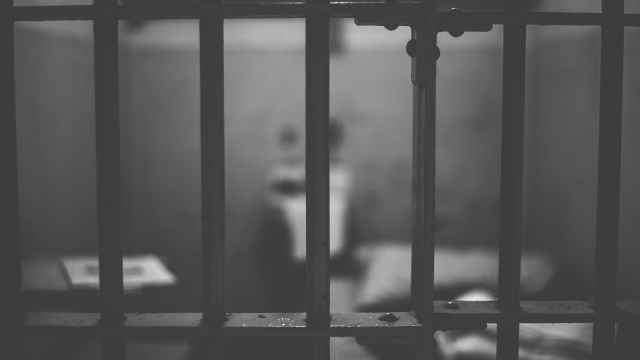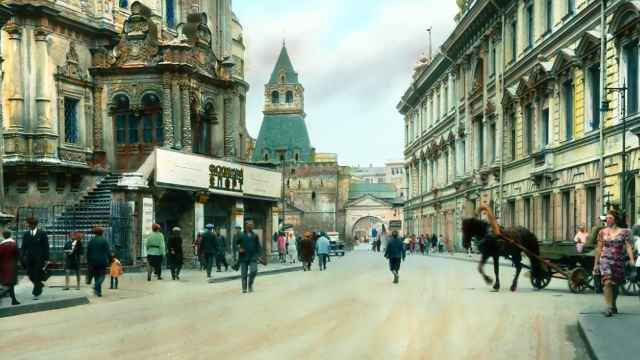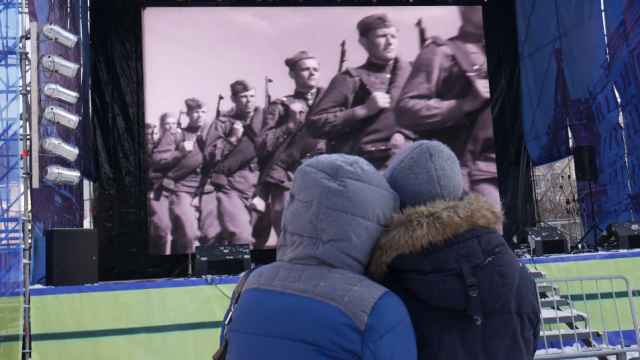A memorial plaque dedicated to poet Anna Akhmatova has disappeared from the former Kresty prison in St. Petersburg, which featured prominently in her most famous poem, photographer Misha Burlatsky reported Thursday.
Akhmatova’s son, the writer Lev Gumilyov, had been imprisoned in Kresty, which held many political prisoners during Stalin’s Great Terror, for “leading an anti-Soviet youth organization.”
A memorial plaque to Akhmatova was installed on building No. 7 — the prison’s main entrance in the 1930s — in 2001.
It quotes from a passage of Akhmatova’s poem "Requiem" in which she asks for a memorial to be placed at the prison’s entrance, where she stood for "300 hours" waiting for news of her son.
Since May of this year, the former prison complex has been owned by the housing development company DOM.RF. Its new owners plan to sell the property at auction, with proceeds going to an organization associated with the Federal Penitentiary Service (FSIN).
An anonymous source from the FSIN told the local 78.ru news website that the plaque was stolen. The incident has not been reported to the police, 78.ru reported.
St. Petersburg opposition deputy Boris Vishnevsky publicly appealed to Governor Alexander Beglov and the CEO of DOM.RF and asked them to take measures to return the plaque.
"In the midst of new political repressions, the destruction of such objects is alarming. This is not the first time they are trying to erase reminders of the past," Vishnevsky wrote on his Telegram channel.
Another monument to Akhmatova, which shows her as a young woman with her head turned towards the prison, stands across the Neva River from the Kresty prison. That monument, which was erected in 2006, is still standing.
In early June, plaques from the Last Address project, which displays the names of victims of Stalinist repressions, also started disappearing from buildings in Moscow.
A Message from The Moscow Times:
Dear readers,
We are facing unprecedented challenges. Russia's Prosecutor General's Office has designated The Moscow Times as an "undesirable" organization, criminalizing our work and putting our staff at risk of prosecution. This follows our earlier unjust labeling as a "foreign agent."
These actions are direct attempts to silence independent journalism in Russia. The authorities claim our work "discredits the decisions of the Russian leadership." We see things differently: we strive to provide accurate, unbiased reporting on Russia.
We, the journalists of The Moscow Times, refuse to be silenced. But to continue our work, we need your help.
Your support, no matter how small, makes a world of difference. If you can, please support us monthly starting from just $2. It's quick to set up, and every contribution makes a significant impact.
By supporting The Moscow Times, you're defending open, independent journalism in the face of repression. Thank you for standing with us.
Remind me later.






